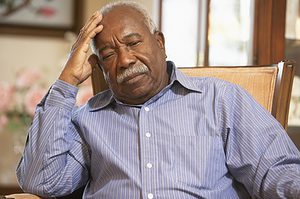Source: BBC News
 It may be possible to slow the decline in memory and learning as we age by tackling poor sleep, researchers hope.
It may be possible to slow the decline in memory and learning as we age by tackling poor sleep, researchers hope.
Their study, in the journal Nature Neuroscience, has revealed an intimate relationship between an ageing brain, sleep and memory.
Experiments showed that changes in the ageing brain damaged the quality of deep sleep, this in turn hampered the ability to store memories.
Scientists want to test ways of boosting sleep to halt memory decline.
Wisdom may come with age, but both the brain and the body take the strain of time. Many people will be aware that both their memory and sleep are not as good as in their earlier years.
Researchers at the University of California, Berkeley, said it was unknown whether changes in the brain, sleep and memory were all separate signs of ageing or deeply connected.
Taken all together, the deterioration of the brain leads to the deterioration of sleep to the deterioration of memory.” Dr Matthew Walker
University of California, Berkeley
They performed a series of experiments on 36 people – an even split of those in their twenties and their seventies.
First the team showed that they could use the state of a region of the brain, called the medial prefronal cortex, to predict how much deep, or slow-wave, sleep a person would have.
That part of the brain is essential for entering deep sleep, but with age the region degrades.
Secondly, they showed that the amount of deep sleep could be used to predict how well people would do on memory tests.
The younger patients getting loads of good quality sleep performed better on tests than their older colleagues who had worse quality sleep.
One of the researchers, Dr Matthew Walker told the BBC: “Taken all together, the deterioration of the brain leads to the deterioration of sleep to the deterioration of memory.”
“Slow wave sleep is critically important for cementing new memories you’ve recently learned. It’s like clicking the save button.
“It’s especially depressing as I continue to get older, but there might be a silver lining.”
Researchers are not able to restore the ageing section of the brain, but they believe they can do something about sleep.
It is possible to boost the quality of sleep by stimulating the right region of the brain with electricity during the night.
The researchers said this had been shown to boost memory performance in young people and they wanted to begin experiments on elderly patients too.
“You don’t have to restore brain cells to restore sleep,” said Dr Walker who described their aim as “jump-starting” the system.
Dementia
In patients with dementia, the symptoms of brain cells dying, bad sleep and memory loss are far far worse than in normal ageing.
Some studies have suggested a link between and dementia. A report, published in the journal Science Translational Medicine, suggested problems sleeping may be an early sign of Alzheimer’s.
Dr Simon Ridley, from the charity Alzheimer’s Research UK, said further studies were needed to confirm the link.
“Increasing evidence has linked changes in sleep to memory problems and dementia, but it’s not clear whether these changes might be a cause or consequence.
“The people studied here were followed for a very short period, and one next step could be to investigate whether a lack of ‘slow-wave’ sleep may also be linked to a long-term decline in memory.”
Hypnotherapy can help with insomnia
Hypnotherapy is a very effective tool at returning clients to a normal pattern of sleep. Insomnia can be because of underlying anxieties or it can simply be habitual behaviour. Both of these underlying causes can be resolved effectively with hypnotherapy. Once the reasons for the insomnia have been removed it is a simple process restore a normal sleep pattern which improves memory, thought processes and emotional state.
